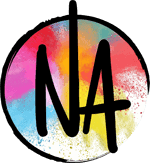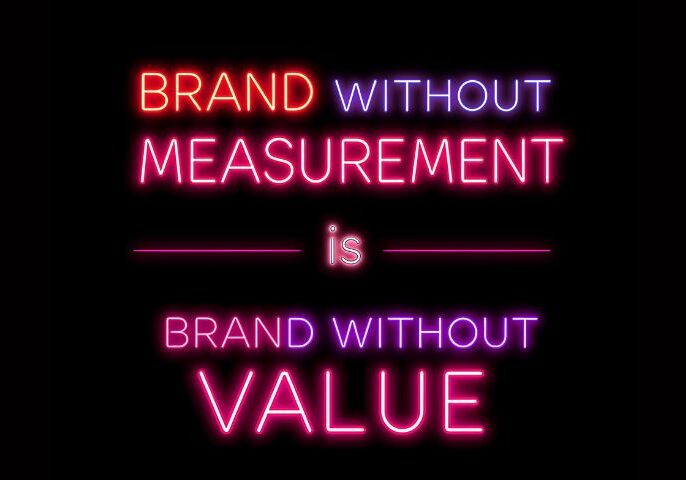Why Your Team is Your Best Marketing Asset
Many organisations are sitting on untapped marketing potential that could transform how they connect with clients, attract talent, and build credibility. They invest heavily in logos, websites, and marketing campaigns while overlooking one of their most powerful assets. It’s the personal branding of their leaders and key team members – an asset many organisations haven’t even recognised they possess.
Yet most leaders approach personal branding with the same reluctance they might have about self-promotion at a networking event. They worry personal branding feels narcissistic, superficial, or somehow at odds with their organisation’s professional standards.
Ready to discover why personal branding might be the missing piece in your marketing strategy? Let’s start with an honest conversation about what personal branding actually means for organisations looking to build genuine connections with their stakeholders.
What Personal Branding Actually Means for Organisations
Personal branding isn’t about becoming a social media influencer or promoting yourself above your organisation. When done strategically, personal branding is about strategic authenticity – deliberately communicating your expertise, knowledge, and unique perspective in ways that amplify your organisation’s impact.
Think of it this way: when someone trusts your leader because they’ve seen them speak thoughtfully about industry challenges, that trust transfers to your organisation. When a potential client or stakeholder chooses your organisation because they’ve followed your founder’s insights on business practices, that’s personal branding serving organisational purpose.
The difference between self-promotion and strategic personal branding lies in the intention behind it. Self-promotion asks, “How can I look good?” Strategic personal branding asks, “How can my expertise and perspective serve my organisation’s goals?”
Why Personal Branding Matters More for Organisations
Organisations face communication challenges that make personal branding particularly powerful:
Trust is your currency
Whether you’re seeking investment, building partnerships, attracting talent, or earning client loyalty, people need to trust not just your organisation but the people behind it. Personal branding builds that human connection that transforms institutional trust into personal trust.
You’re competing for attention in crowded markets
There are countless organisations in every sector claiming expertise and credibility. Personal branding helps you stand out through genuine expertise and authentic perspective rather than just louder marketing.
Your stakeholders make decisions based on relationships
Investors back people they believe in. Clients choose professionals they trust. Talent joins leaders who inspire them. Personal branding builds these crucial relationships at scale.
You need to communicate complex ideas simply
Many business challenges involve nuanced problems that don’t fit neatly into traditional marketing messages. Personal branding allows for the kind of thoughtful, ongoing conversation that builds understanding over time.
What Does Your Organisation Need from Personal Branding?
Before diving into personal branding tactics, we need to diagnose what your organisation needs from this strategy. Different organisations require different personal branding approaches:
For service-based organisations, personal branding might focus on:
- Building client confidence through expert leadership
- Demonstrating expertise to potential partners and stakeholders
- Creating authentic connections with communities and audiences
- Positioning leaders as credible voices in industry discussions
For growth-focused businesses, personal branding might emphasise:
- Showcasing expertise that attracts aligned clients and talent
- Building a reputation beyond technical competence alone
- Demonstrating genuine commitment to quality and service
- Creating competitive advantage through thought leadership
The key is understanding which outcomes matter most for your specific goals and resources when developing your personal branding strategy.
The Strategic Assembly Approach to Personal Branding
Just as we assemble the right mix of marketing expertise for each organisation, effective personal branding requires orchestrating multiple elements:
Content Strategy
What unique insights can your leaders share that serve your audience whilst building credibility? Effective personal branding isn’t about posting inspirational quotes – it’s about consistently delivering valuable content that demonstrates expertise and an authentic commitment to your cause.
Platform Selection
LinkedIn for professional credibility, industry publications for thought leadership, speaking opportunities for direct engagement, and media appearances for broader reach. The right combination depends on your audience, resources, and your personal branding goals.
PR and Media Relations
Building relationships with journalists, securing media coverage, and positioning leaders as go-to experts in their field. Strategic PR amplifies personal branding efforts and creates credibility that goes beyond what organisations can say about themselves.
Message Consistency
Your personal branding should amplify your organisation’s values whilst maintaining individual authenticity. This requires careful coordination to ensure personal and organisational messaging work in harmony.
Authentic Storytelling
People connect with stories, not statistics. Effective personal branding shares the human journey behind the professional expertise – the experiences that shaped your commitment to your cause.
Making Personal Branding Work Within Real-World Constraints
Personal branding requires genuine investment of time, energy, and coordination. Working in harmony with your organisation’s broader marketing strategy means planning, consistency, and ongoing effort.
However, you can build on what you already have rather than starting from scratch:
Start with existing expertise
Your leaders already have knowledge and experience. Personal branding involves developing this into consistent, strategic communication.
Leverage existing content
Reports, presentations, and insights your organisation already produces can be adapted and developed for personal branding platforms.
Build on existing relationships
Speaking opportunities, media interviews, and industry connections can be developed through personal branding rather than scattergun PR campaigns.
Plan for sustainable output
Personal branding is most effective when you can maintain a realistic publishing schedule and response rate. It’s better to commit to one thoughtful piece per month that you can sustain than attempt weekly content that becomes a burden.
The Partnership Approach – When to Build Personal Branding, When to Seek Support
While some elements of personal branding draw on internal knowledge – your unique expertise, existing content, and organisational culture – pulling these together into an effective strategy often requires an external perspective. Many organisations find they need help identifying what makes their leaders genuinely distinctive or translating their expertise into compelling content that resonates with their target audience.
External expertise becomes essential for media training and interview skills, content strategy and editorial planning, as well as crisis communication planning. These areas require specialist knowledge of what works across different platforms and audiences, as well as experience in how personal branding can go wrong and how to protect both individual and organisational reputations.
Most importantly, integration with a broader marketing strategy needs someone who can see the full picture and coordinate all elements effectively. Even when you have internal marketing expertise, personal branding requires a different approach that balances individual authenticity with organisational goals.
The key is an honest assessment of your team’s capabilities and the strategic importance of personal branding to your organisation’s goals. If personal branding is critical to your growth strategy, investing in external support makes sense. If it’s a nice-to-have addition, you might start with internal development but expect to need specialist help as things get more complicated.
Measuring Impact That Matters
Personal branding success for organisations goes far beyond follower counts or social media engagement. The metrics that matter focus on relationship quality and business outcomes. Are you building connections with the right stakeholders, and are those conversations becoming deeper and more meaningful over time?
Alignment is crucial – your personal branding should help attract supporters, clients, partners, or talent who genuinely align with your organisation rather than just increasing numbers. The real test is organisational impact. Personal branding efforts should translate into increased business opportunities, better client relationships, enhanced reputation, and improved talent attraction for your organisation.
Most importantly, focus on sustainable growth. Your personal branding approach should build long-term credibility rather than generate short-term attention that doesn’t convert into lasting relationships or business value.
Ready to Discover What Your Organisation Needs?
Personal branding for organisations isn’t about ego or self-promotion – it’s about strategic authenticity that amplifies your goals and builds the relationships your organisation needs to thrive.
Whether you need help diagnosing your personal branding opportunities, developing content strategies that feel authentic to your approach, or assembling the right mix of support to make personal branding sustainable within your resources, we’re here to explore what would work for your unique situation.
Because organisations deserve marketing strategies that feel true to their approach and work as hard as they do – and that includes the powerful, often overlooked strategy of strategic personal branding.
Let’s start with an honest conversation about your challenges, aspirations, and resources. No jargon, no hard sell – just conversation about making your marketing work harder for your goals.






